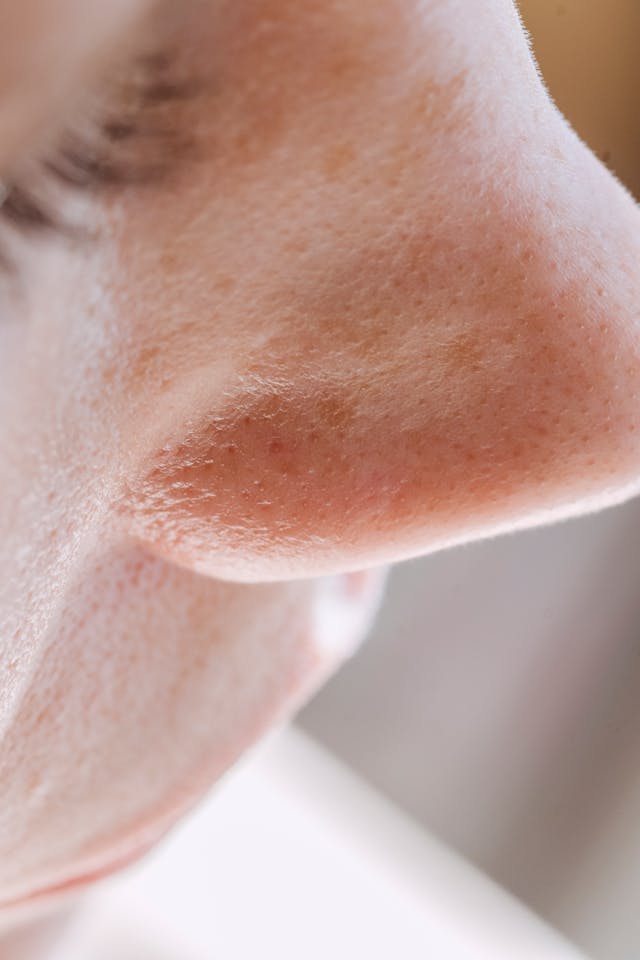When should you consider surgery for nasal polyps? Nasal polyps are soft, noncancerous growths that develop on the lining of your nasal passages or sinuses. Although they are benign, they can cause a variety of uncomfortable symptoms, such as nasal congestion, facial pressure, loss of smell, and sinus infections. In many cases, nasal polyps respond well to medications, but sometimes surgical intervention becomes necessary.
If you’re suffering from chronic sinus problems or nasal blockage, and medications haven’t provided relief, it might be time to consider surgery. Below, we explore when surgery is appropriate and how an experienced ENT specialist like Dr. Michael Burnett in New York City can help you breathe easier and feel better.

What Are Nasal Polyps?
Nasal polyps are teardrop-shaped growths that arise from inflammation of the mucous membranes in the nose and sinuses. They are most often associated with:
Smaller polyps may not cause noticeable symptoms, but larger or multiple polyps can obstruct nasal passages and sinuses, leading to ongoing discomfort and health problems.
Common Symptoms of Nasal Polyps
- Persistent nasal congestion or blockage
- Frequent sinus infections
- Facial pressure or pain
- Loss or reduction of the sense of smell or taste
- Postnasal drip
- Snoring or sleep disturbances
If you’re experiencing several of these symptoms and they don’t improve with medication, it’s a strong indication that you may need further evaluation.
Initial Treatment Options
In most cases, ENT specialists like Dr. Burnett will first recommend non-surgical treatments, such as:
- Nasal corticosteroid sprays – To reduce inflammation and shrink polyps.
- Oral corticosteroids – For more severe inflammation or larger polyps.
- Antihistamines – If allergies are a contributing factor.
- Saline rinses – To flush allergens and irritants from the nasal passages.
- Antibiotics – If a sinus infection is present.
If your polyps return frequently or do not respond to these therapies, your ENT may recommend surgery.
When to Consider Surgery for Nasal Polyps
 You may be a candidate for nasal polyp removal surgery if:
You may be a candidate for nasal polyp removal surgery if:
- You’ve completed a full course of medication with little or no symptom improvement.
- Your polyps are causing chronic sinus infections or blockages.
- You’re experiencing a significant loss of smell or taste.
- You have frequent headaches or facial pressure due to blocked sinuses.
- You have a history of recurring polyps despite medication or prior surgery.
What Is Endoscopic Sinus Surgery?
The most common surgical option for nasal polyps is endoscopic sinus surgery, a minimally invasive procedure performed using a thin, flexible tube with a camera (endoscope). During the surgery, your ENT specialist will:
- Use precision tools to remove polyps and clear blockages
- Open sinus passages to restore normal drainage
- Preserve as much healthy tissue as possible
The procedure is typically done under local or general anesthesia and is performed on an outpatient basis, meaning you can return home the same day.
Post-Surgical Care and Recovery
Recovery from nasal polyp surgery is usually quick, with most patients returning to normal activities within a week. Your doctor may prescribe nasal sprays, rinses, and medications to prevent recurrence and support healing. Regular follow-ups are essential to monitor progress and manage any potential regrowth of polyps.
Surgery for Nasal Polyps: Consult with Dr. Michael Burnett for Expert ENT Care in NYC
If you’re struggling with persistent nasal congestion, sinus infections, or a diminished sense of smell, nasal polyps may be to blame. Dr. Michael Burnett, a leading ENT specialist in New York City, offers comprehensive evaluation and personalized treatment plans — including advanced surgical options — to help you find lasting relief.
Contact Ear, Nose & Throat of New York today to schedule your consultation:
Ear, Nose & Throat of New York
Michael C. Burnett, MD
115 East 57th Street Suite 600
New York, NY 10022
📞 212-867-4813
🌐 https://earnosethroatofnewyork.com/
Don’t let nasal polyps keep you from breathing comfortably. Get expert care in the heart of NYC and start your journey toward clearer airways today.







 You may be a candidate for nasal polyp removal surgery if:
You may be a candidate for nasal polyp removal surgery if: